|
|
|
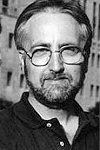 |
| |
MI6 caught up with the fourth official James Bond
author last month and chatted about his life, during
and after his work with the world's most famous literary
spy...
|
|
Interview - Raymond Benson (Part 3)
June 4th 2004
MI6 caught up with the fourth official James Bond author last
month and chatted about his life, during and after his work with
the world's most famous literary spy. In this final part of the
interview, we look back at his time as Bond novelist…
Looking Back..
The devotion of the fans to the series can be a blessing and
a curse to anyone adding new material to the canon, in both the
film and literary worlds. Has your view of the fan base changed
since your time as the official author?
It's changed a lot, mostly thanks to the Internet. Back in the
70s and 80s, the only thing that brought fans together were the
occasional collectors' shows in big cities. The fan clubs infrequently
published fanzines upon which we had to depend for news. Overall,
though, the fans in those days were a tightly-nit group of people
that celebrated Bond in a friendly, sharing way. With the advent
of the Internet, there are now a zillion Bond websites, the newsgroup,
and countless other things that bring so-called news to fans and
bring them together. It's allowed anyone and everyone to share
their opinions publicly, whether or not those opinions are valid,
thought-out, or educated.
|
I've seen competition between websites become very ugly
and now the fan community seems to consist of a lot of flaming
each other and backstabbing.
Fans can be anonymous and thus free to say whatever they
like with no regard for whether or not it's tactful and
in good taste. I think anyone in this day and age that puts
out some kind of art-whether it be books, music, films,
whatever-are subject to unnecessarily cruel criticism that
simply didn't exist ten years ago.
On the other hand, there are plenty of fans out there that
don't frequent website message boards and the like. In my
case I've met hundreds of fans at my personal appearances,
book signings, and what-have-you, that have nothing to do
with Bond fan sites.
I'm well aware that there's a huge disparity in the fans'
opinions of my work on MI6's message boards, along with
all the other Bond sites' message boards. I've learned over
the years that those opinions, whether good or bad, are
not representative of the majority of my readers.
Right: Timothy Dalton
|
|
'...people
such as Desmond or Timothy Dalton or the Governor of Gibraltar
wrote to tell me that they loved this...'
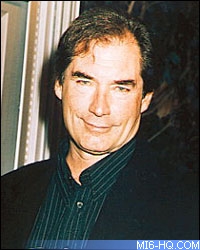
|
Your predecessor John Gardner said he didn't read reviews
of his Bond books. Did you keep tabs on how they were being received,
or did you rely on self-critique?
At the beginning I did but I quickly learned that I shouldn't
go there. Now I know why actors, writers, and other people in
the arts say they don't read their reviews. A good review can
certainly make you feel good but a bad one can destroy you.
'When
Peter Janson-Smith, the man who had been Fleming's literary
agent, read Zero Minus Ten upon completion, he said, "Raymond,
this is a Bond novel.'
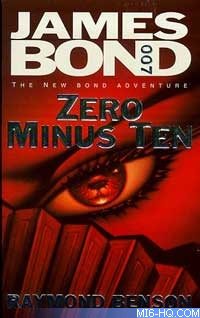
Above: Zero Minus Ten
 UK
- MI6 Price: £4.79
UK
- MI6 Price: £4.79 |
|
Just after I got online but before I became the Bond
author, I frequented the Bond Internet newsgroup and participated
in fan sites. Once I began the writing, though, the Internet
was not a safe place to hang out. Friends kept me apprised
of what was happening but for the most part I stayed away.
Instead, I was able to gauge how I was doing by the comments
made by certain people I respected.
For example, Desmond Llewelyn was a huge fan of my work.
He told me that he often pitched my books to the EON producers,
asking why they didn't use them. When people such as Desmond
or Timothy Dalton or the Governor of Gibraltar wrote to
tell me that they loved this or that book, that was all
the justification I needed. When Peter Janson-Smith, the
man who had been Fleming's literary agent, read Zero Minus
Ten upon completion, he said, "Raymond, this is a Bond
novel. Ian would be pleased." I think that comment
went a long way toward giving me the confidence to keep
going, despite the outrageous comments by some Bond fans
that I "couldn't write."
I'd also like to say here that I enjoyed John Gardner's
works. I was probably a little too critical of his books
in The James Bond Bedside Companion and I since apologized
to him. You have to remember I wrote that book over twenty
years ago, when I was a young and cocky fan trying to be
clever-like a lot of the people on fan website message boards!
|
Before taking over from John Gardner you worked on a couple
of James Bond games. If you were to be involved in a future Bond
project, which arm of the empire would you choose out of films,
books, or games?
Difficult question. I like to think I've moved on from Bond.
I'm on the other side of it now. I still have a relationship with
Ian Fleming Publications and we've left the door open in case
some future project comes down the pipe that I'd be suited for.
I don't think they'd ask me to do more novels because the feeling
is that they want to keep them fresh with new authors every five
or six books. I have no idea what their plans are. If EON came
calling I suppose I'd enjoy working on a film. I have no interest
in doing games again. The problem with that industry is that if
you don't keep up with the technology, it passes you by. I haven't
worked in the computer gaming industry since 1997 and I'm afraid
I wouldn't be able to catch up. My interests have changed.
|
Glidrose commissioned the play in 1986. It was my idea
to do it. At the time, the Bedside Companion was a hit and
I was still working in theatre. I proposed the idea of doing
a Bond play, but EON had all performance rights locked up-film
and stage-except for Casino Royale. At the time, the film
rights were still owned by Columbia, but Glidrose actually
owned the stage rights. Luckily, that's the one book that
could be adapted easily enough to the stage. I wrote the
play-and it's a very faithful adaptation-and then held a
staged reading with professional actors in New York City
in February 1986.
'I'm proud of all
of them. If I had to pick, though, I'd have to say the three
books that make up the "Union Trilogy" '
|
|
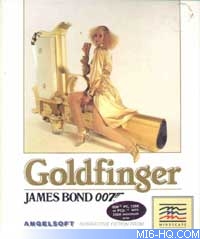
Above: Goldfinger by Mindscape Inc.
|
The people at Glidrose were unfortunately unable to attend. The
reading was a success and I was convinced the play could work.
Glidrose in the meantime submitted the script to a British theatrical
agent who rejected it. Glidrose lost interest in it then and I
believe ultimately came to the opinion that Bond just wouldn't
work on stage. The films had a monopoly on how the public perceives
Bond. They shelved the play, but I was paid a small fee for it
anyway (which is more than most playwrights get for their efforts!).
Between then and now, EON eventually bought the rights to Casino
Royale from Columbia, as well as the stage rights. So now, EON
owns the production rights of the play, although I own the actual
copyright of the play itself. But I can't do anything with it-I
can't publish it or produce it without EON's okay. And EON has
no interest in producing a play that would compete with the image
of Bond that they've cultivated for the screen.
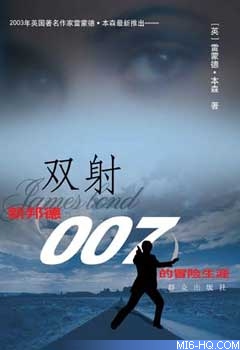
Above: DoubleShot
 US - MI6 Price: $16.00
US - MI6 Price: $16.00
|
|
Which of your novels are you most proud of and why?
That's like choosing between children! I'm proud of all
of them. If I had to pick, though, I'd have to say the three
books that make up the "Union Trilogy"-High Time
to Kill, DoubleShot, and Never Dream of Dying. I took the
most chances with those three books. There is more of me
in those books, and I think I managed to convey Bond's human
side more than in any of the others. Most of the fans I
talk to tell me the same thing.
Which of your novels do you think is closest to a Fleming
adventure, and conversely, an Eon Productions movie?
I don't like to compare myself to Fleming. He's in a class
by himself. I suppose the most Fleming-ish ones would be
Zero Minus Ten and High Time to Kill. The one that is most
like an EON film is The Facts of Death. I purposefully set
out with that one to write an EON-style Bond story.
|
What happens next, now you're off the James Bond scene? Are
you planning to keep writing novels or move on to new pastures?
Oh, I'm still writing like a madman. In 2002 I wrote an original
suspense novel called Face Blind, which was published in 2003
by Twenty First Century Publishers Ltd. That book was inspired
by a BBC television documentary that, coincidentally, John Cleese
hosted, entitled "The Human Face." The story concerns
a woman afflicted with "prosopagnosia," or "face
blindness." In other words, she has the inability to recognize
faces. I thought that was an intriguing premise for a suspense
story-a sort of "Wait Until Dark" style thriller in
which the woman becomes the victim in mistaken identity situations.
|
Prior to that, during a three-month down period between
Bond novels, I wrote an original mystery novel called Evil
Hours. It's the story of a woman's quest for the truth behind
the long-ago murder of her mother. Evil Hours was commissioned
by an online e-book company in 2000 and was published as
an e-book and print-on-demand book. The company went out
of business recently and I got the rights back. Twenty First
Century Publishers have recently published Evil Hours, so
two non-Bond novels available. I found the time to write
a small book about the rock band Jethro Tull. I'm friends
with the band and have been a longtime fan. I've recently
completed a new suspense novel but I'm biding my time with
that one. Hopefully you'll see an announcement about it
sometime this year. Last fall I sat down and wrote my James
Bond memoirs-a short autobiography, so to speak-about my
experiences with Bond. I don't know what I'll do with that.
I can't imagine anyone really being interested in it. Maybe
a small press thing, like Richard Kiel's book or Syd Cain's
book, would work. I haven't decided.
|
|
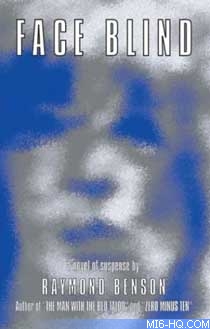
Above: Face Blind
 UK
- MI6 Price: £7.99
UK
- MI6 Price: £7.99
 USA
- MI6 Price: $12.95
USA
- MI6 Price: $12.95
|
Currently I'm developing yet another suspense book. It's funny
because now I'm back in the ranks of struggling writers that have
to supplement income by doing lots of other things. I teach film
courses at a community college. I do speaking engagements. I look
for freelance writing assignments of all kinds. I even do office
temp work! Very few writers can actually make a living on their
novels alone. But it's nice having the freedom to do whatever
I want and the satisfaction that I participated in one of the
most beloved literary franchises the world has known. I don't
take it for granted. My heartfelt thanks goes out to those folks
at Glidrose and to all the fans and readers that supported me.
|
00-Seven Questions
How were you involved in the Bond series?
Mostly as a writer-Bedside Companion, fanzine articles,
six original Bond novels, three short stories, and three
film novelizations
What was your first ever Bond experience?
Seeing Goldfinger at age nine
What did you think of the last film, "Die Another
Day"?
It felt like a rollercoaster ride at an amusement park.
Fun while it was on.
What is your favourite Bond film?
From Russia With Love
Who is your favourite Bond?
Sean Connery
Which Bond girl should come back?
None!
What is your favourite Bond moment from the series?
Connery's first appearance in Dr. No, at the casino, when
he lights his cigarette and tells us his name.
|
Many thanks to Raymond Benson.
 |
|
MI6 Biography
Name: Raymond Benson
Portfolio
"Zero Minus Ten" (1997) - Author
"The Facts Of Death" (1998) - Author
"High Time To Kill" (1999) - Author
"Doubleshot" (2000) - Author
"Never Dream Of Dying" (2001) - Author
"The Man With The Red Tattoo" (2002) -
Author
"Tomorrow Never Dies" Novelisation (1997)
- Author
"The World Is Not Enough" Novelisation
(1999) - Author
"Die Another Day " Novelisation (2002)
- Author
|
|
Images courtesy Amazon Associates, Homa & Sekey Books, Moby
Games
Related Articles
 MI6 Literary 007 Coverage
MI6 Literary 007 Coverage
 MI6
Interview - Raymond Benson (Part 1) MI6
Interview - Raymond Benson (Part 1)
 MI6
Interview - Raymond Benson (Part 2) MI6
Interview - Raymond Benson (Part 2)
 Raymond
Benson Official Website Raymond
Benson Official Website
|
|
|